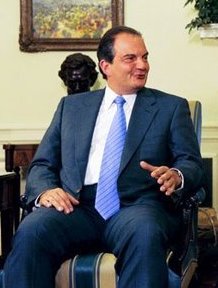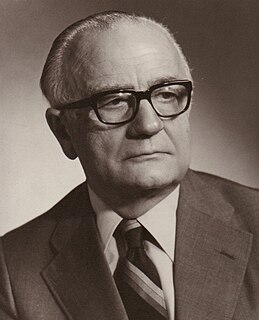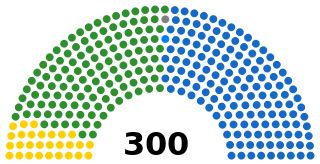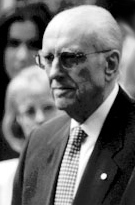| |||||||||||||||||||||||||||||||||||||||||
All 300 seats to the Greek Parliament 151 seats were needed for a majority | |||||||||||||||||||||||||||||||||||||||||
|---|---|---|---|---|---|---|---|---|---|---|---|---|---|---|---|---|---|---|---|---|---|---|---|---|---|---|---|---|---|---|---|---|---|---|---|---|---|---|---|---|---|
| |||||||||||||||||||||||||||||||||||||||||
| |||||||||||||||||||||||||||||||||||||||||

Parliamentary elections were held in Greece on Sunday, 18 October 1981. [1] The Panhellenic Socialist Movement (PASOK), led by Andreas Papandreou, faced New Democracy, led by Georgios Rallis. Papandreou achieved a landslide and PASOK formed the first socialist government in the history of Greece (in 1963 Centrists had formed a government under the leadership of George Papandreou, Andreas' father, but their party, Center Union, was not a socialist party but a centrist, social-liberal one).

Greece, officially the Hellenic Republic, self-identified and historically known as Hellas, is a country located in Southern and Southeast Europe, with a population of approximately 11 million as of 2016. Athens is the nation's capital and largest city, followed by Thessaloniki.

Andreas Georgios Papandreou was a Greek economist, a socialist politician and a dominant figure in Greek politics. The son of Georgios Papandreou, Andreas was a Harvard-trained academic. He served three terms as prime minister of Greece.
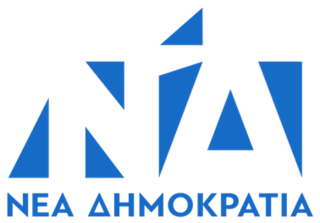
The New Democracy, also referred to as ND (ΝΔ) by its initials, is a liberal-conservative political party in Greece. In modern Greek politics, New Democracy has been the main centre-right political party and one of the two major parties along with its historic rival, the Panhellenic Socialist Movement (PASOK). Having spent two and a half years in government under the presidency of Antonis Samaras, New Democracy lost its majority in the Hellenic Parliament and became the major opposition party after the January 2015 legislative election.
Contents
185 of the 300 seats were won by PASOK or the Communist Party: both openly eurosceptic. This was the high point of Greek euroscepticism, coming just months after the country's accession to the European Communities. [2]

The Communist Party of Greece is a Marxist–Leninist political party in Greece. Founded in 1918 as the Socialist Labour Party of Greece, it is the oldest political party in modern Greek politics. The party played a significant role in the Greek resistance and its membership peaked in the mid-1940s. It was the instigator of the Greek Civil War, but ended on the losing side and was banned until 1974.

Euroscepticism means criticism of the European Union (EU) and European integration. It ranges from those who oppose some EU institutions and policies and seek reform, to those who oppose EU membership outright and see the EU as unreformable. The opposite of Euroscepticism is known as pro-Europeanism.

The European Communities (EC), sometimes referred to as the European Community, were three international organizations that were governed by the same set of institutions. These were the European Coal and Steel Community (ECSC), the European Atomic Energy Community, and the European Economic Community (EEC); the last of which was renamed the European Community (EC) in 1993 by the Maastricht Treaty, which formed the European Union.






